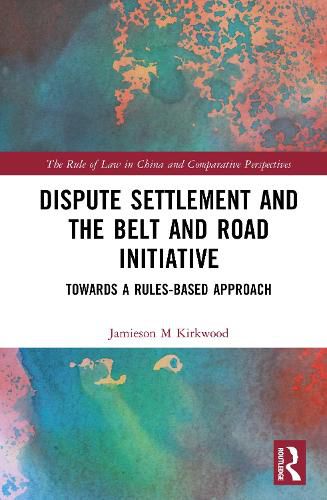Readings Newsletter
Become a Readings Member to make your shopping experience even easier.
Sign in or sign up for free!
You’re not far away from qualifying for FREE standard shipping within Australia
You’ve qualified for FREE standard shipping within Australia
The cart is loading…






This book presents a response to the numerous calls for instituting a rules-based approach in Belt and Road Initiative (BRI) dispute resolution. The theoretical framework developed here builds a case that the BRI is a demonstration of China's growing use of "soft power" and that BRI dispute settlement consequently operates on the basis of a "power-based" approach. The work analyses what a rules-based approach to dispute resolution means, explores what the BRI actually is, and what BRI disputes are. It then considers why rules are understood to be necessary in BRI dispute resolution and, finally, sets out policy proposals. It will be of interest to academics, researchers and policy-makers working in the areas of Chinese Law, Alternative Dispute Resolution, International Investment Law, World Trade Law, and Comparative Law.
$9.00 standard shipping within Australia
FREE standard shipping within Australia for orders over $100.00
Express & International shipping calculated at checkout
This book presents a response to the numerous calls for instituting a rules-based approach in Belt and Road Initiative (BRI) dispute resolution. The theoretical framework developed here builds a case that the BRI is a demonstration of China's growing use of "soft power" and that BRI dispute settlement consequently operates on the basis of a "power-based" approach. The work analyses what a rules-based approach to dispute resolution means, explores what the BRI actually is, and what BRI disputes are. It then considers why rules are understood to be necessary in BRI dispute resolution and, finally, sets out policy proposals. It will be of interest to academics, researchers and policy-makers working in the areas of Chinese Law, Alternative Dispute Resolution, International Investment Law, World Trade Law, and Comparative Law.